Just a few hours to go!
13.06.2025 13:36 — 👍 0 🔁 0 💬 0 📌 0Museum of Medical Heritage, Trinity College Dublin
@oldanatomytcd.bsky.social
@oldanatomytcd.bsky.social
Just a few hours to go!
13.06.2025 13:36 — 👍 0 🔁 0 💬 0 📌 0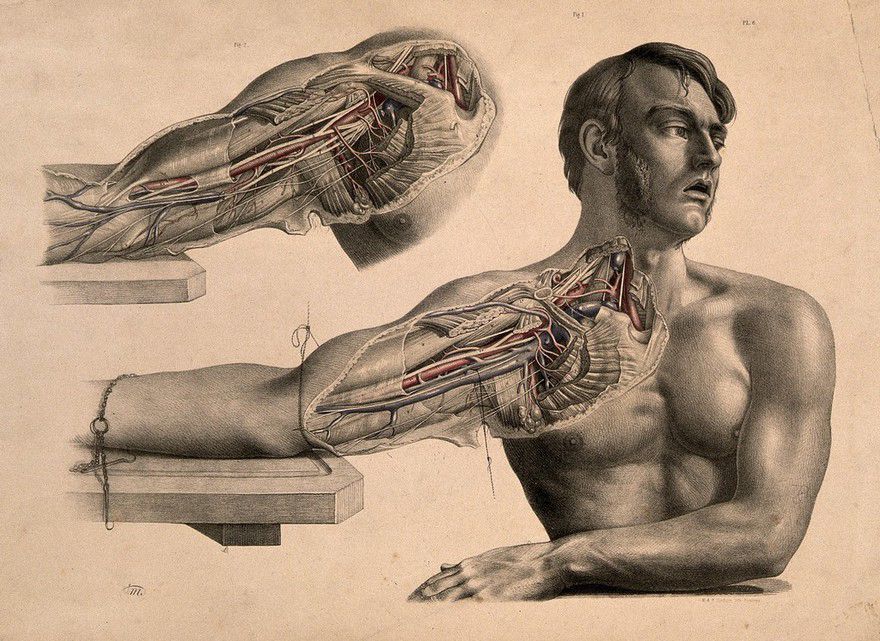
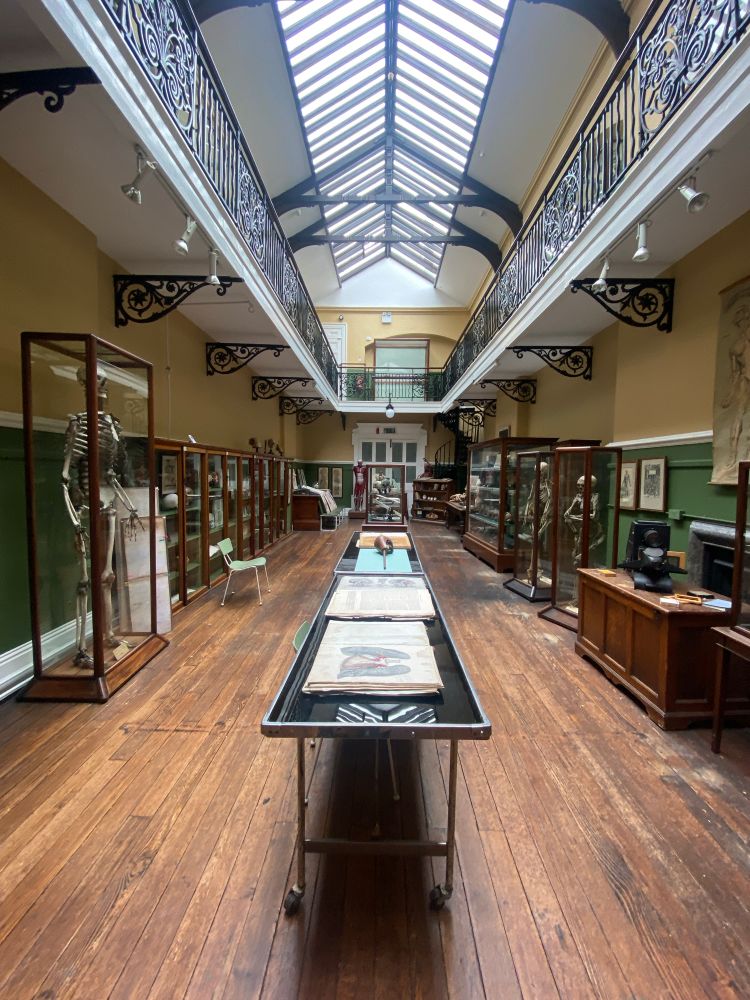
#histmed #tcdmedicine #medicalhumanities #queeranatomies #queethistory #lbgtqhistory #artinmedicine #anatomy #medicalmuseum #irishhistory @tcddublin.bsky.social
11.06.2025 18:50 — 👍 4 🔁 0 💬 0 📌 0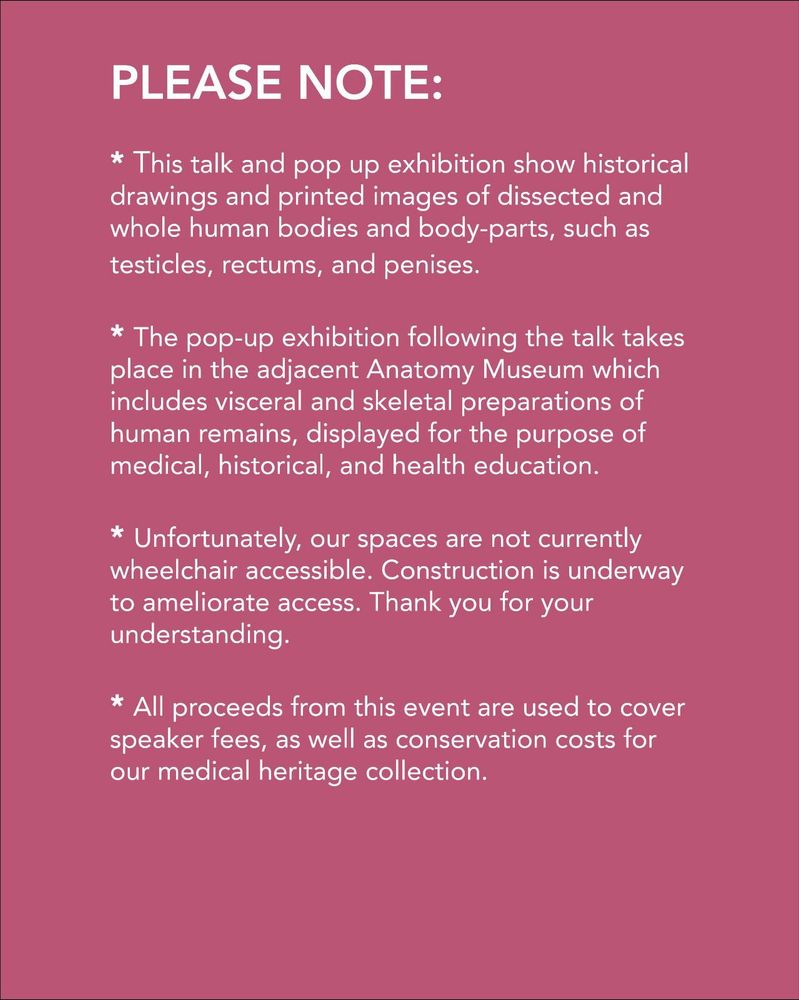
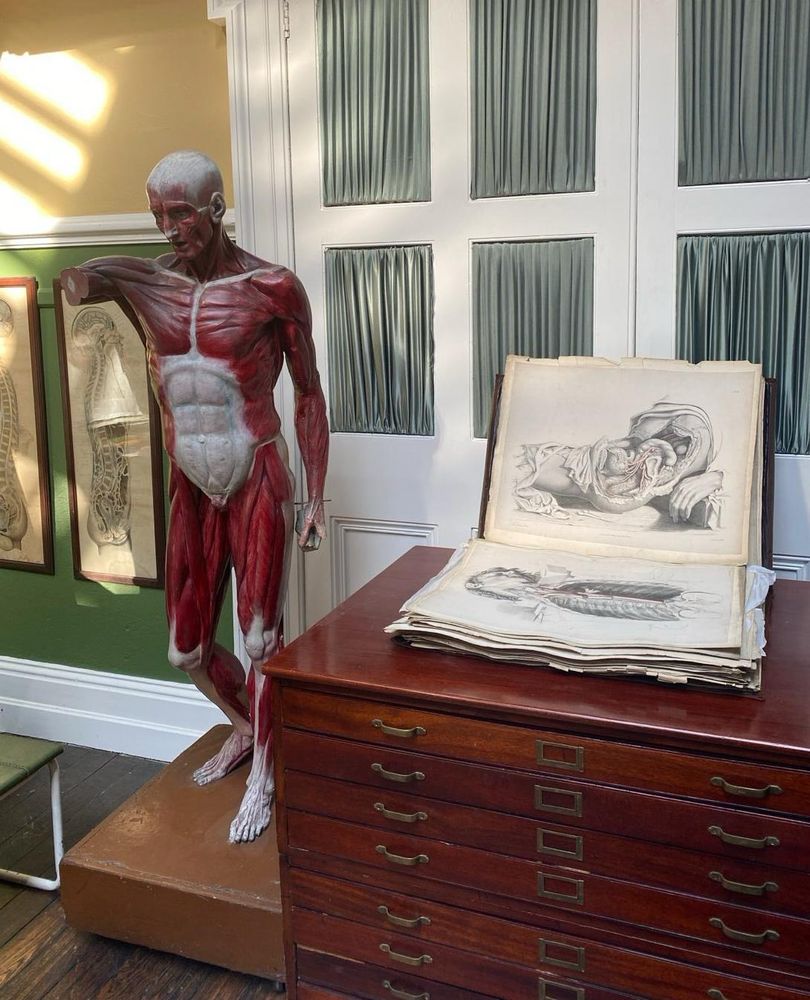
Please note that this event is 18+ only.
11.06.2025 18:50 — 👍 3 🔁 0 💬 1 📌 0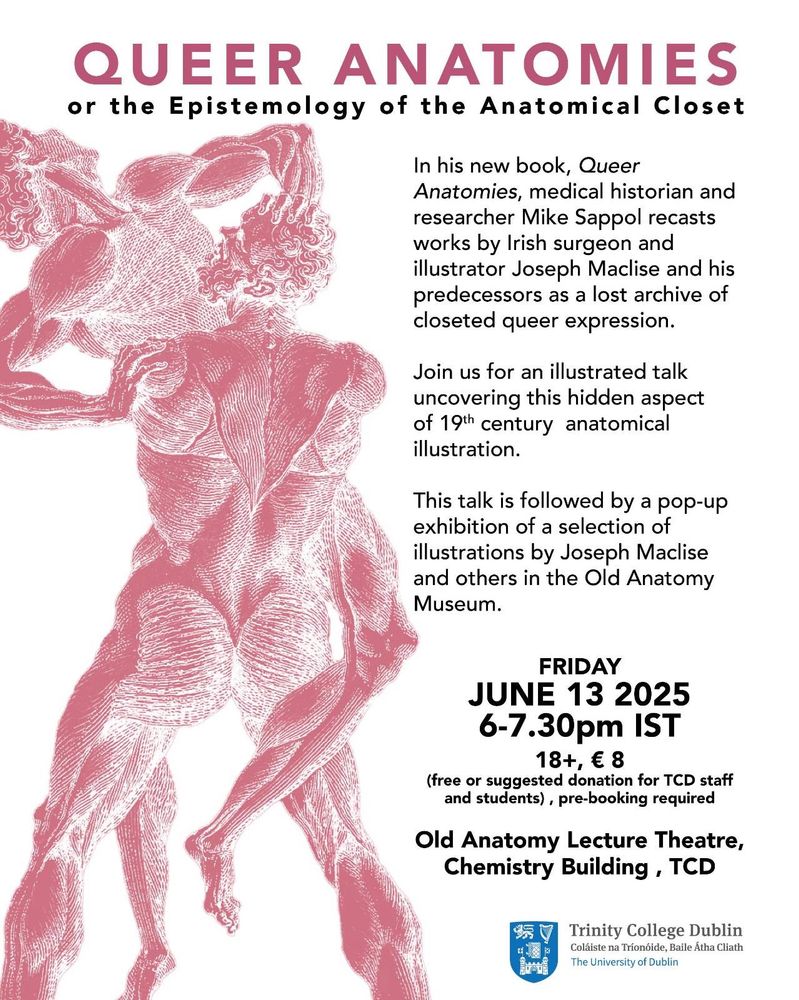
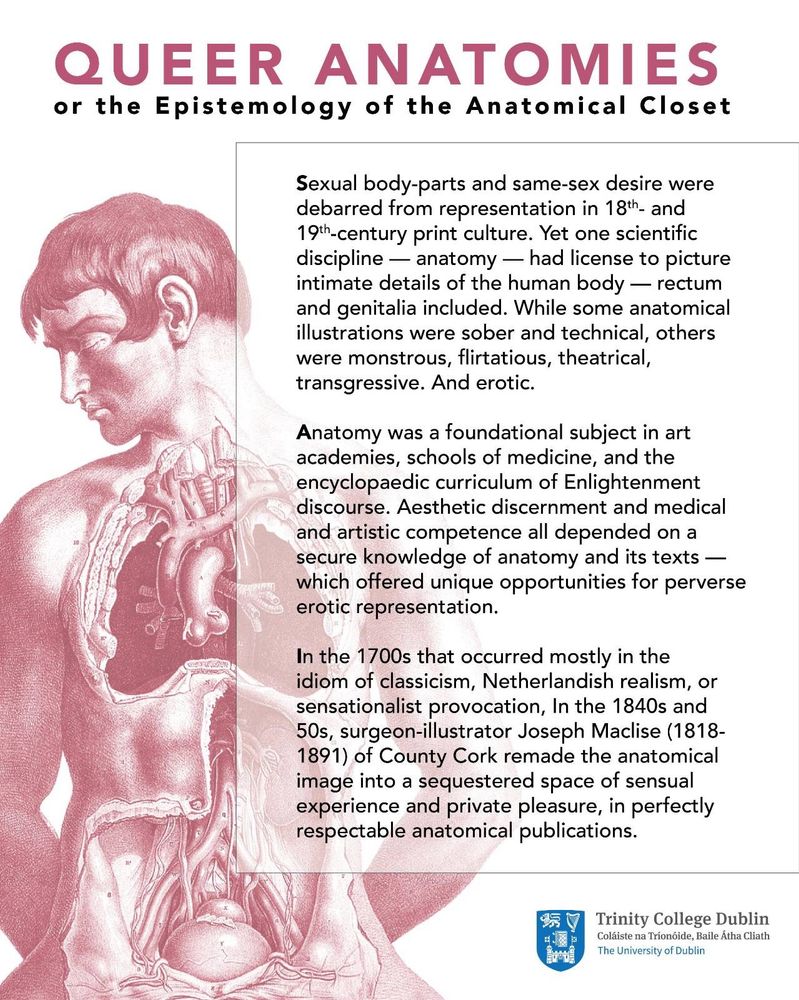
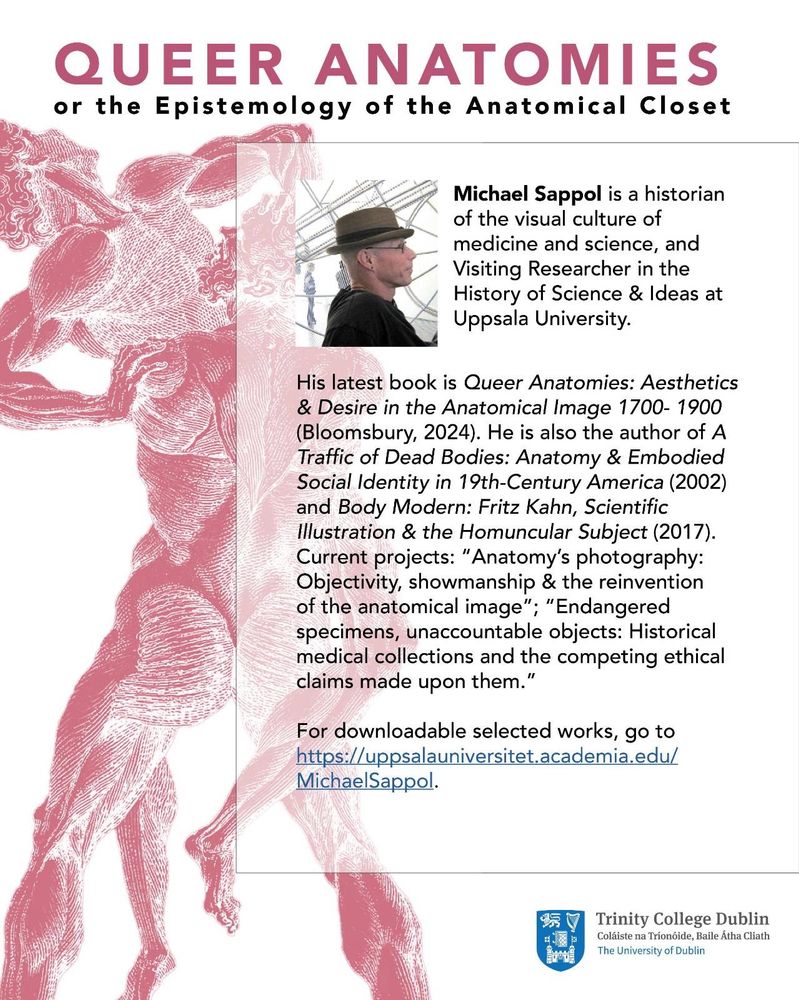
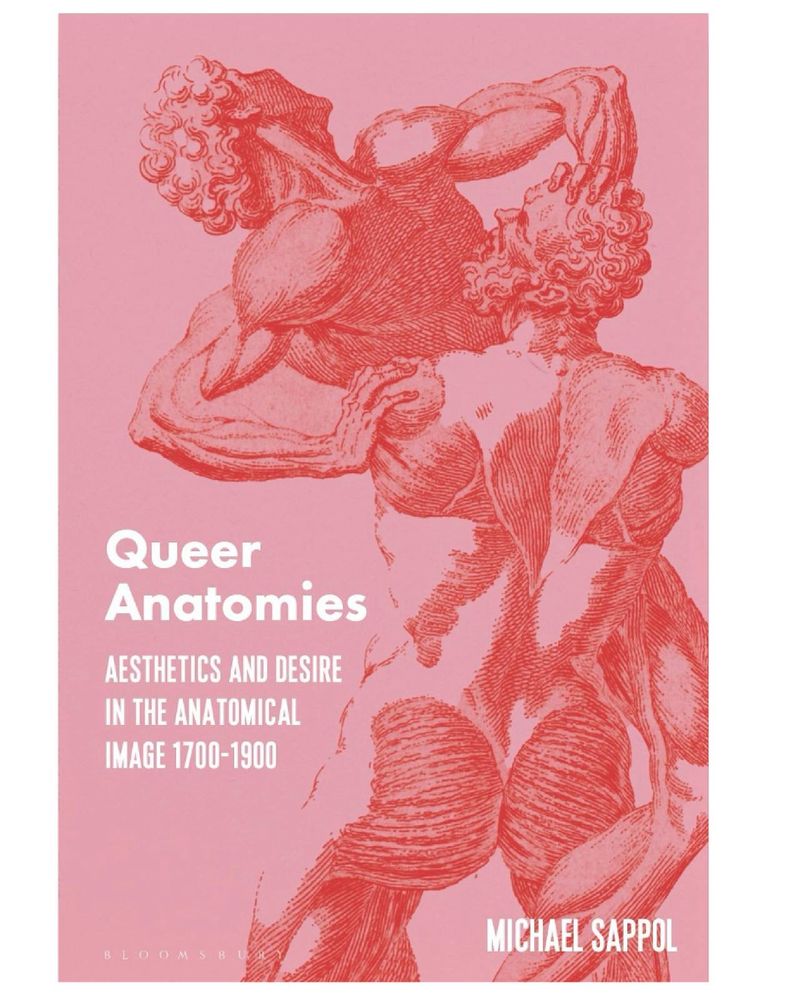
This Friday! Join us at 6pm for a fascinating view into the hidden codes within anatomical illustration guided by author + historian of medicine Michael Sappol, and a pop up exhibit of illustrations by Irish anatomist Joseph Maclise and his contemporaries in our museum.
tinyurl.com/Queeranatomi...
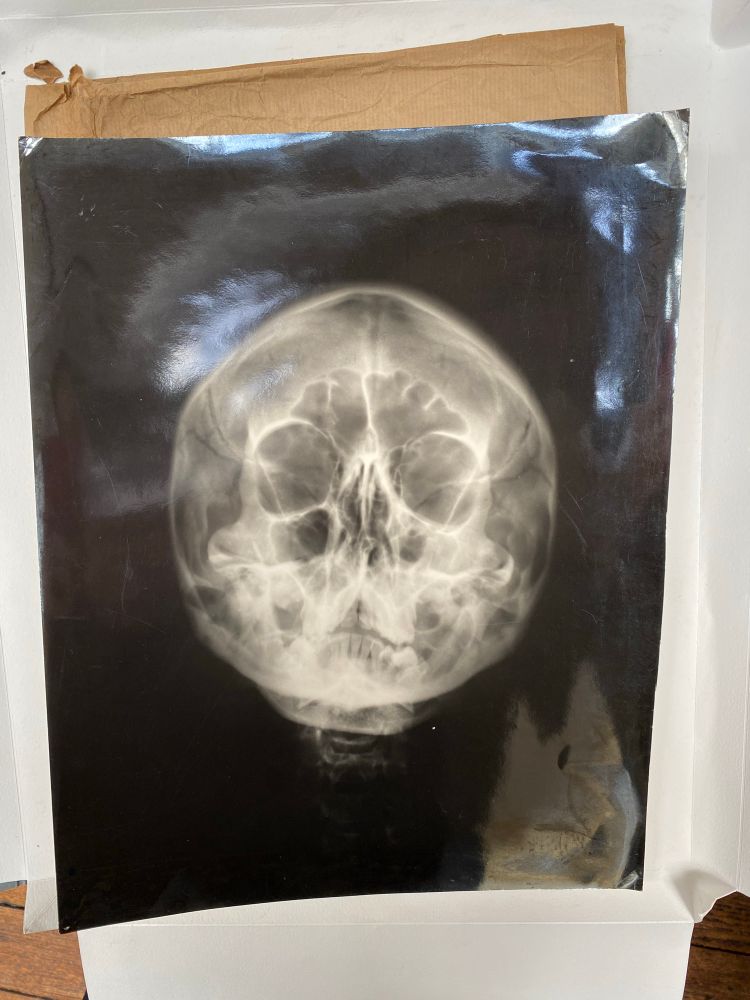
In love with yesterday’s #archivefind in the @oldanatomytcd.bsky.social #medicalheritage collection. Likely a turn of the century skiagraph (early form of x-ray) of a human skull, captured at an unusual angle. Such a striking image!
29.05.2025 19:51 — 👍 17 🔁 3 💬 0 📌 0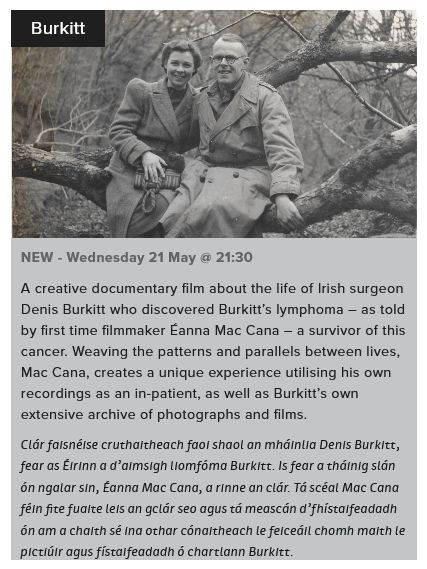
This Wednesday at 9pm IST airing on TG4 in Gaeilge @tg4.bsky.social!
Tune in to learn about the life and work of Irish surgeon #DenisBurkitt and #TCDMedSchool alumn who discovered a rare form of cancer, #BurkittsLymphoma:
Mark your calendars!
19.05.2025 15:59 — 👍 2 🔁 1 💬 0 📌 0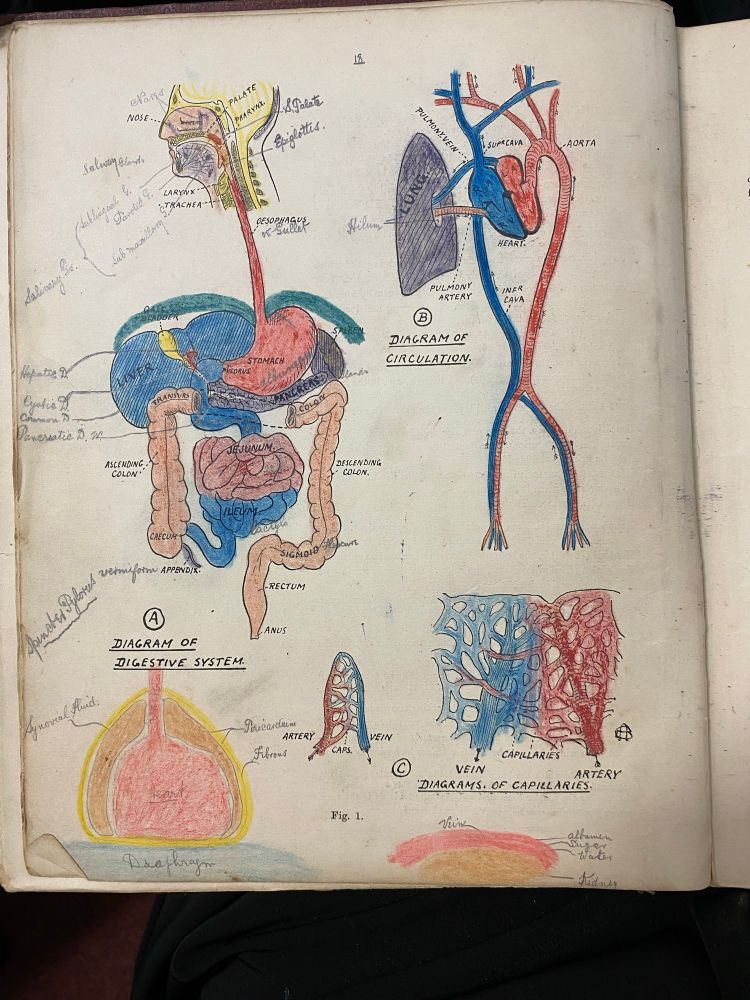
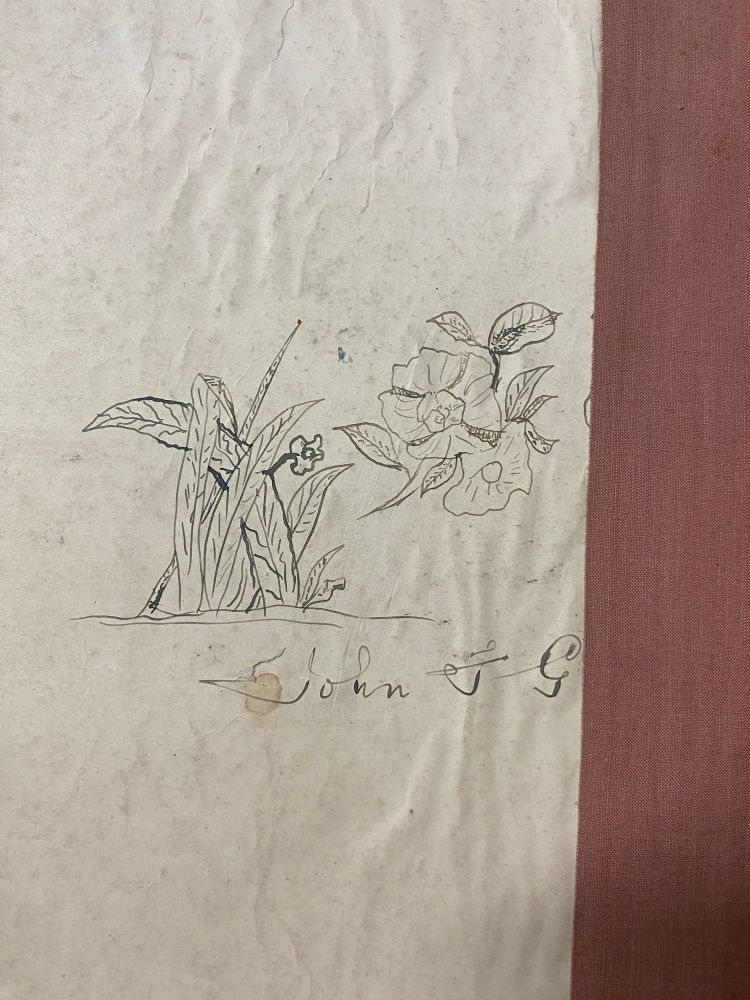
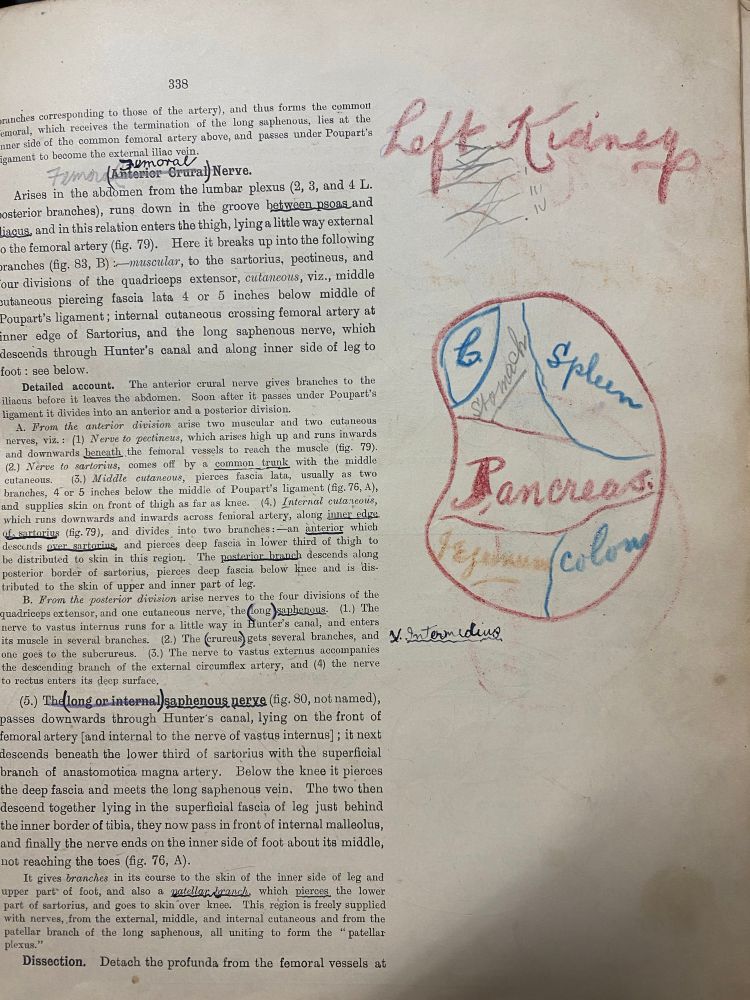
All have their own stories to reveal. Like this vividly coloured and ‘be-doodled’(🤔?) copy of Cunningham’s notebook addendum to his Practical Manual of Anatomy:
14.05.2025 01:26 — 👍 1 🔁 0 💬 0 📌 0Yesterday was devoted to organising part of our antique #bookcollection! Most of the volumes in it are part of a lending library the #anatomydepartment held for student use from the 1830s to the 1980s. Some belonged to former students and are heavily annotated. Others are professors’ own copies.
14.05.2025 01:26 — 👍 2 🔁 1 💬 1 📌 0Links between sport-related brain injury and dementia examined in new study. Read the full article here t.ly/wvfZb
22.04.2025 15:33 — 👍 3 🔁 2 💬 0 📌 0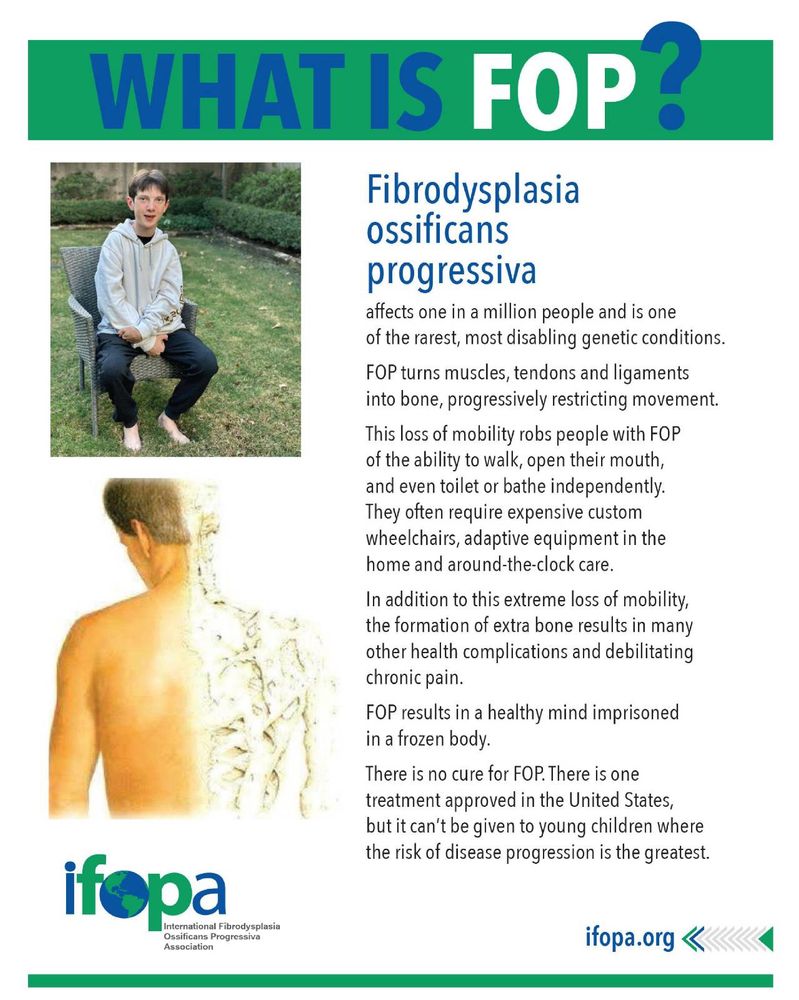
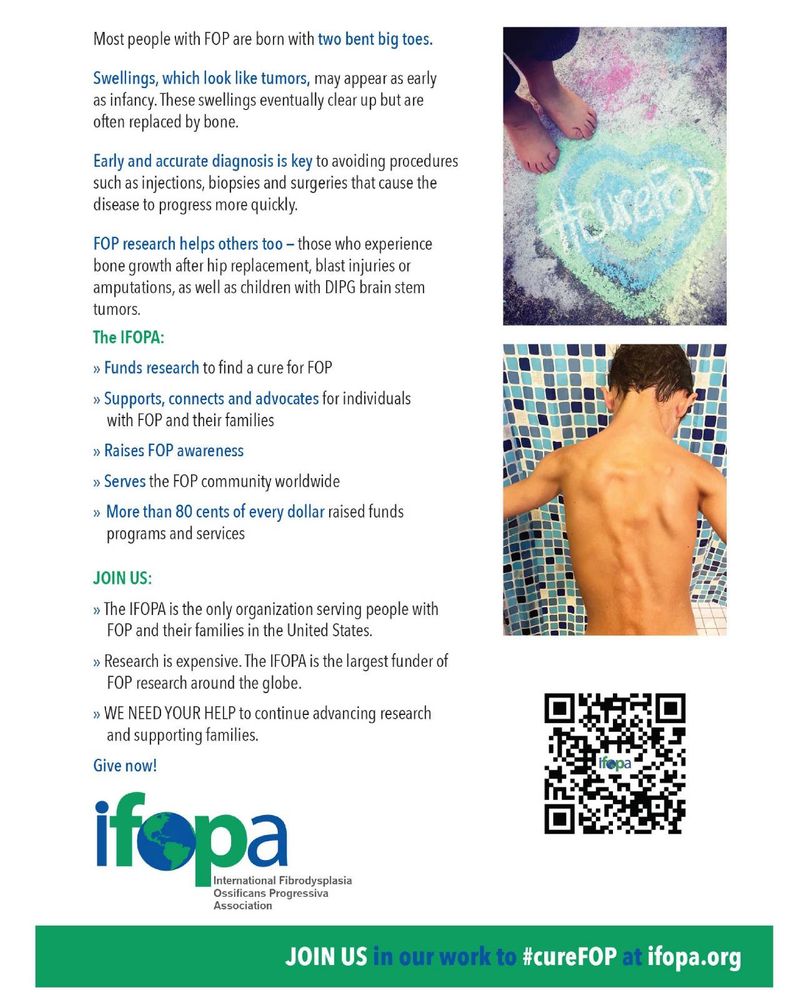 21.04.2025 17:33 — 👍 1 🔁 1 💬 0 📌 0
21.04.2025 17:33 — 👍 1 🔁 1 💬 0 📌 0
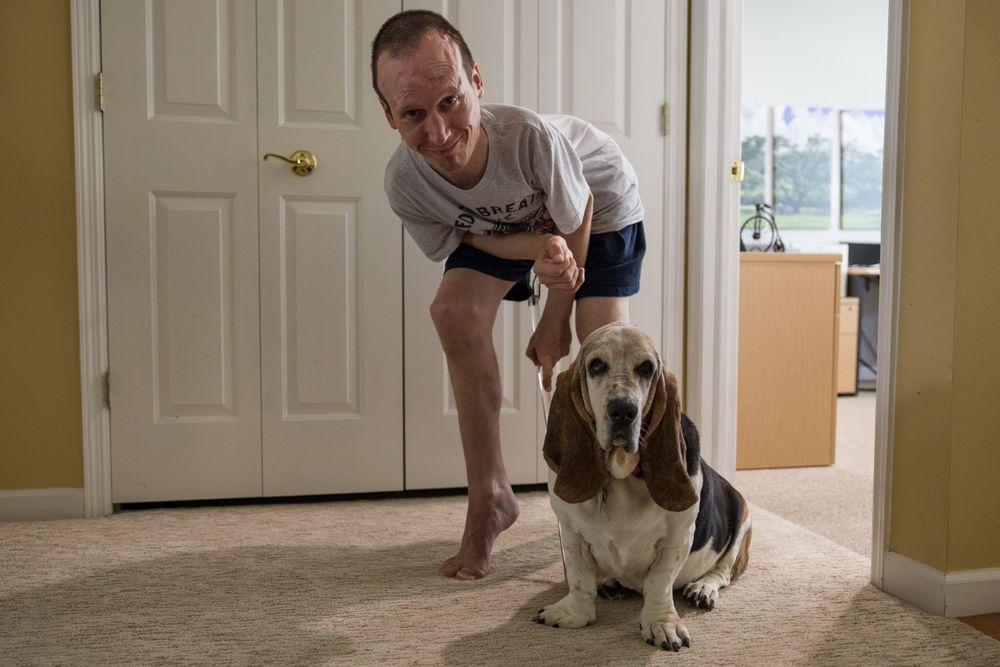
Learn more & help #cureFOP at www.ifopa.org
21.04.2025 17:33 — 👍 2 🔁 1 💬 1 📌 0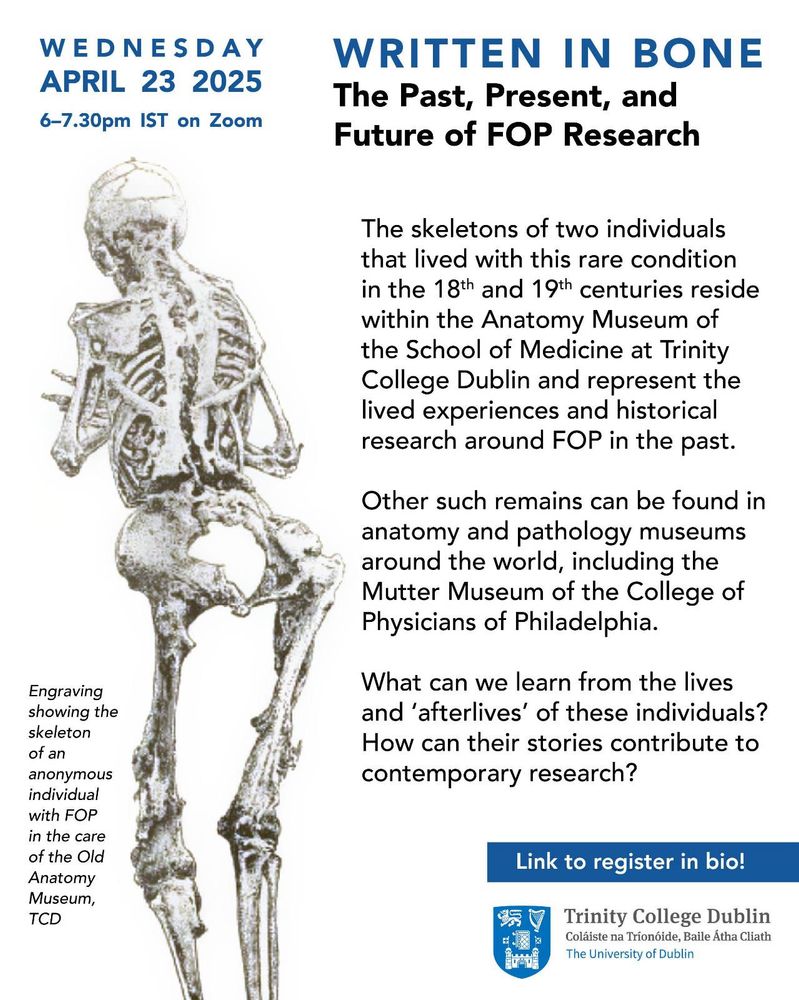
Promo poster for free online talk that reads as follows: Written in Bone: The Past, Present, and Future of FOP Research Wednesday, April 23, 2025 6-7.30 pm IST April 23rd is the International Day for FOP Awareness. The skeletons of two individuals that lived with this rare condition in the 18th and 19th centuries reside within the Anatomy Museum of the School of Medicine at Trinity College Dublin and represent the lived experiences and historical research around FOP in the past. Other such remains can be found in anatomy and pathology museums around the world, including the Mutter Museum of the College of Physicians of Philadelphia. What can we learn from the lives and 'afterlives' of these individuals? How can their stories contribute to contemporary research?
What can we learn about the future of #FOPResearch from its past?
21.04.2025 17:33 — 👍 2 🔁 1 💬 1 📌 0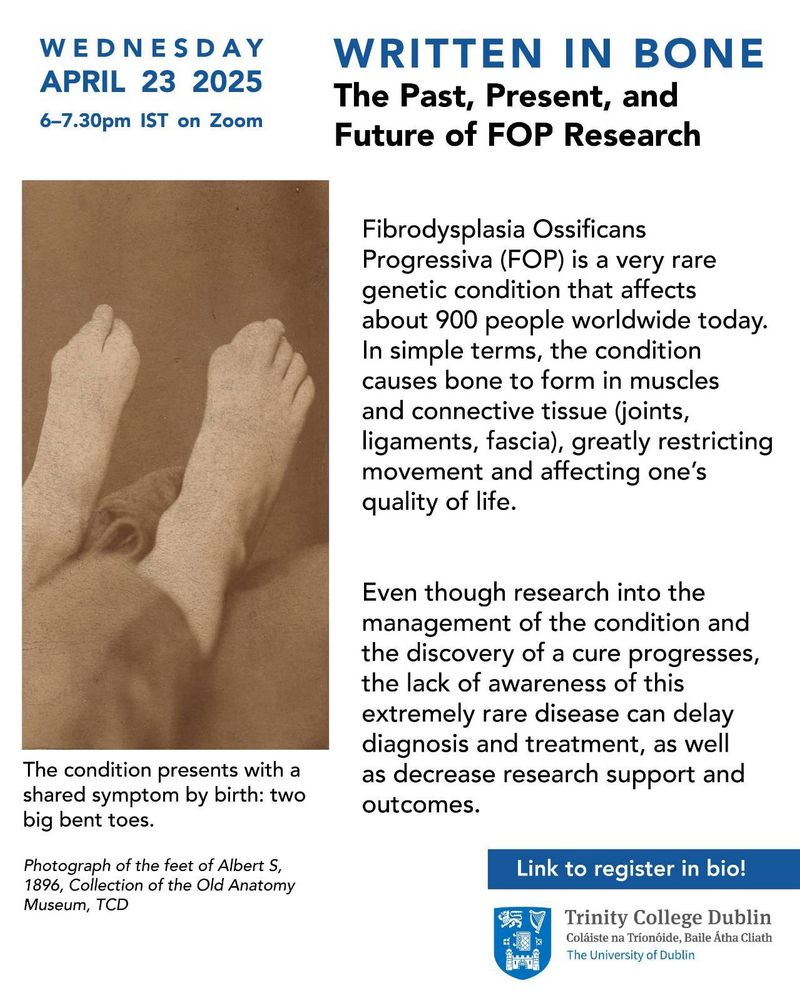
Promo poster for free online talk that reads as follows: Written in Bone: The Past, Present, and Future of FOP Research Wednesday, April 23, 2025 6-7.30 pm IST April 23rd is the International Day for FOP Awareness. What is FOP? Fibrodysplasia Ossificans Progressiva (FOP) is a very rare genetic condition that affects about 900 people worldwide today. In simple terms, the condition causes bone to form in muscles and connective tissue (joints, ligaments, fascia), greatly restricting movement and affecting one's quality of life. Even though research into the management of the condition and the discovery of a cure progresses, the lack of awareness of this extremely rare disease can delay diagnosis and treatment, as well as decrease research support and outcomes.
What is #FOP ?
21.04.2025 17:33 — 👍 1 🔁 1 💬 1 📌 0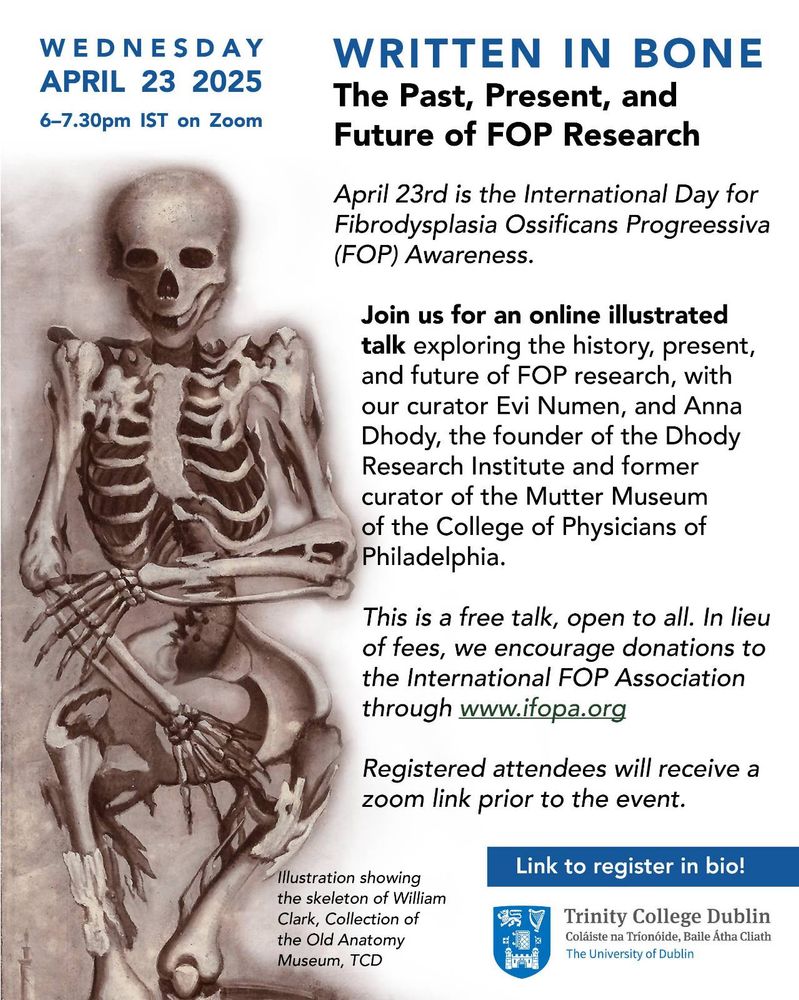
April 23rd is the International Day for FOP Awareness. What is FOP? Fibrodysplasia Ossificans Progressiva (FOP) is a very rare genetic condition that affects about 900 people worldwide today. In simple terms, the condition causes bone to form in muscles and connective tissue (joints, ligaments, fascia), greatly restricting movement and affecting one's quality of life. Even though research into the management of the condition and the discovery of a cure progresses, the lack of awareness of this extremely rare disease can delay diagnosis and treatment, as well as decrease research support and outcomes. The skeletons of two individuals that lived with this rare condition in the 18th and 19th centuries reside within the Anatomy Museum of the School of Medicine at Trinity College Dublin and represent the lived experiences and historical research around FOP in the past. Other such remains can be found in anatomy and pathology museums around the world, including the Mutter Museum of the College of Physicians of Philadelphia. What can we learn from the lives and 'afterlives' of these individuals? How can their stories contribute to contemporary research? Join us for an online illustrated talk exploring the history, present, and future of FOP research, with our curator Evi Numen, and Anna Dhody, the founder of the Dhody Research Institute and former curator of the Mutter Museum of the College of Physicians of Philadelphia. This is a free talk, open to all. In lieu of fees, we encourage donations to the International FOP Association through www.ifopa.org Registered attendees will receive a zoom link prior to the event.
This Wednesday! 6- 7.30 pm IST Register here:
www.eventbrite.com/e/written-in...
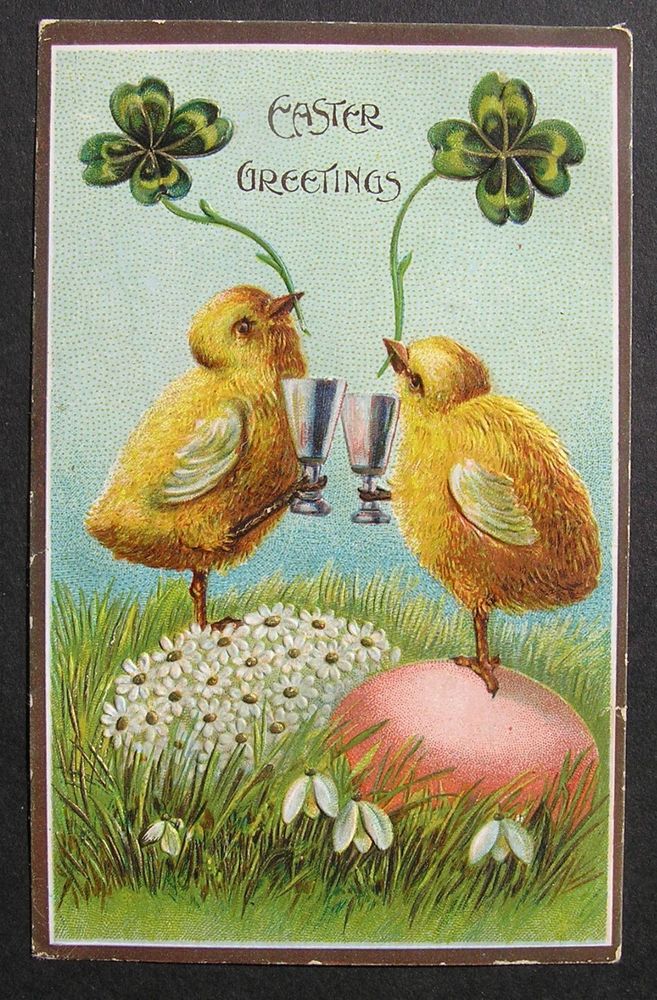
A Happy Easter from us all here with this appropriately antique, but physiologically dubious 1905 postcard!
#OldAnatomy #oldAnatomyMuseum #OldAnatomyTCD #anatomyTCD #MedicalHeritage #easterGreetings #antiquePostcard #medicalHumanities #historyOfIreland #trinityCollegeDublin #dublinMuseums
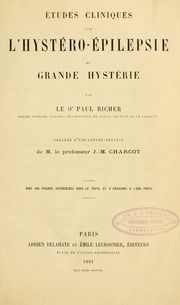
The reference work can be found in its entirety courtesy of @archive.org: archive.org/details/tude...
11.03.2025 16:00 — 👍 0 🔁 0 💬 0 📌 0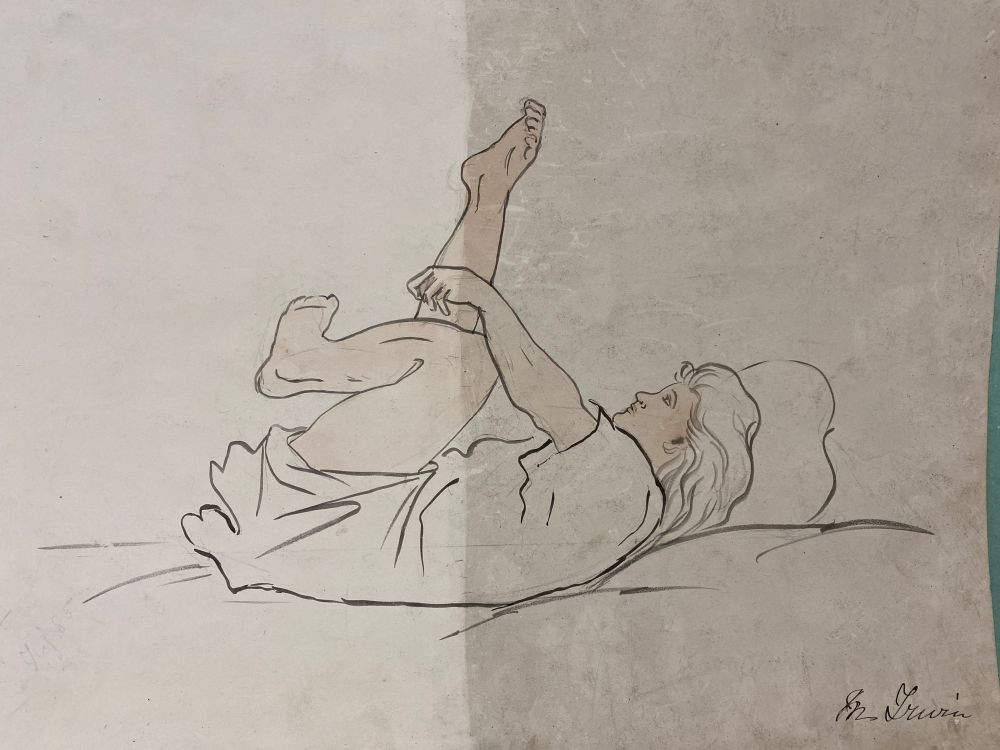
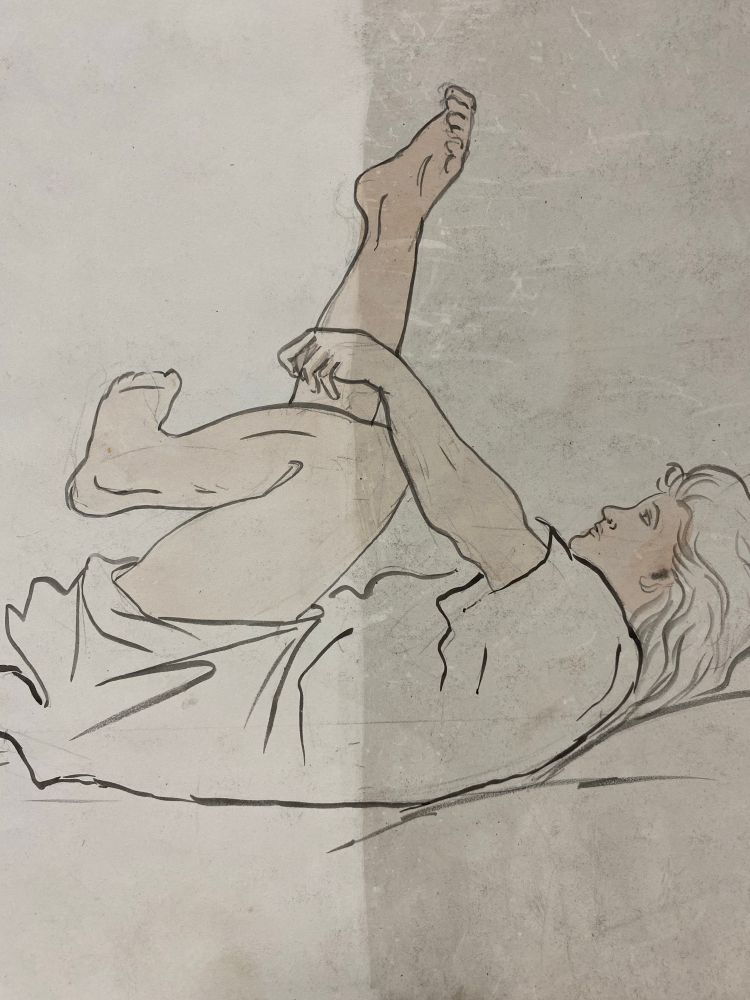
Artwork conservation day here at the museum! Cleaning a layer of dust off this late 19th cent. watercolour painting by Marsella Irwin is time-consuming and careful work, but quite satisfying!
The artwork is one of a set of copies of drawings of ‘hysteric’ epilepsy by Paul Richer published in 1881:
The greater part of it is exhaled & is carried by the winds and clouds to distant regions, &finally they descend with rains to fertilise the earth. We thus repay our great debt to nature, and return the elements of our bodies to the common storehouse.Thus ends this strange, eventful history.” 4/4
06.03.2025 15:06 — 👍 0 🔁 0 💬 0 📌 0Macartney prefaces this poem extract with these words:
“The last great event is the extinction of the systematic functions which is commonly called death. As soon as the vitality of the tissue is lost, the body becomes subject to the laws of inorganic matter.
3/4
‘“All forms that perish, other forms supply:
(By turns we catch the vital breath and die,)
Like bubbles on the sea of matter borne
They rise, they break, and to that sea return.’ ”
At this point the pen had evidently dropped from his hand.'' (writes his biographer A. Macallister)
2/4
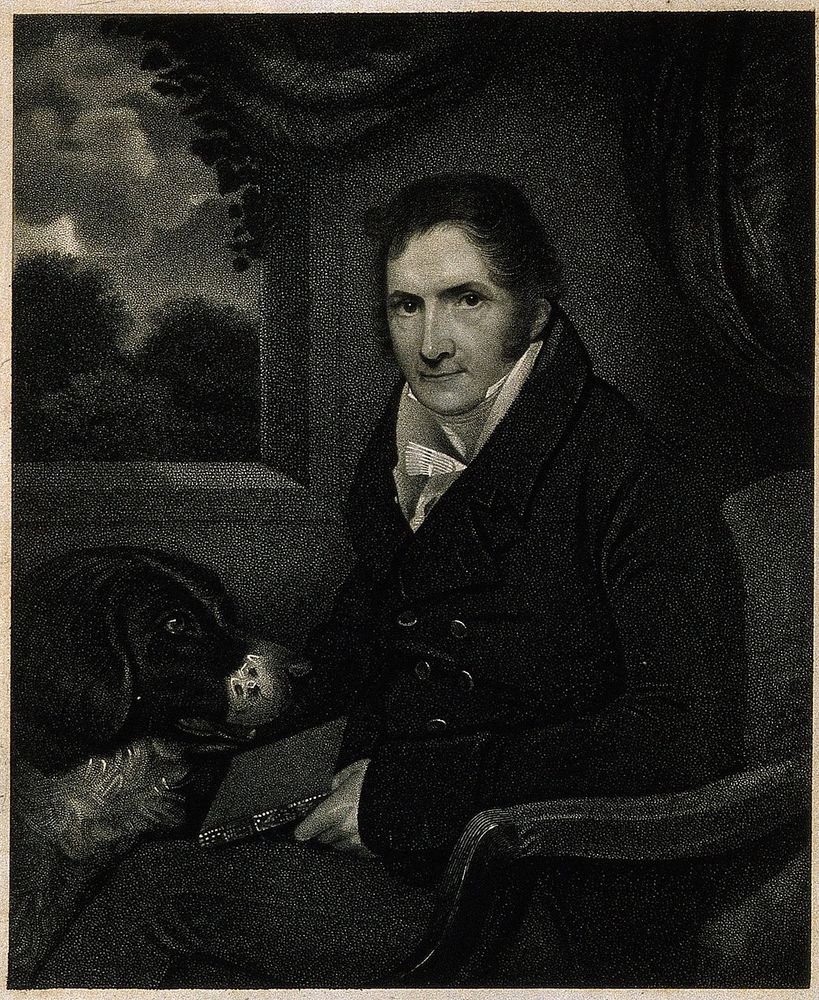
#OnThisDay in 1843, Professor of Anatomy at @tcddublin.bsky.social and curator of our museum, James Macartney (b.1770) penned his last words, quoting the poem “An Essay on Man” by Alexander Pope (1688–1744): 🧵 1/4
06.03.2025 15:06 — 👍 2 🔁 1 💬 1 📌 0We have one too but it's terrible condition 😭
The material it's made of (a proprietary mix of papier mâché, cork, pigment, and more) makes its conservation extremely tricky. We do want to try to save ours though! Auzoux pieces are such gems of medical model-making.
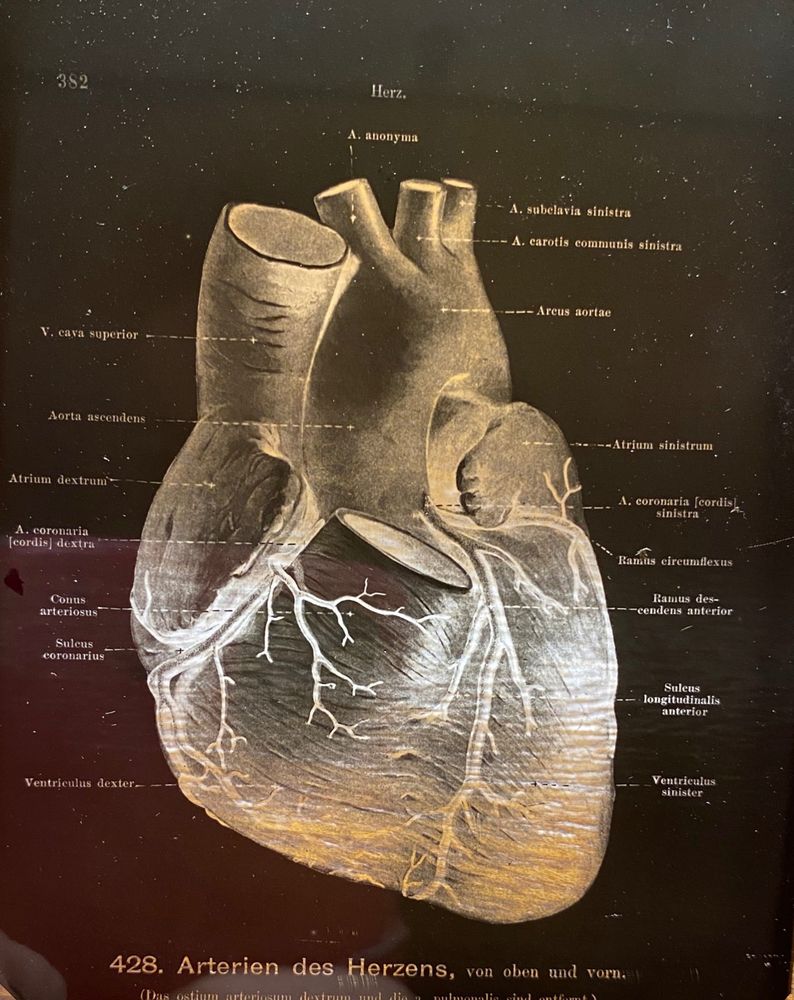
and last but not least, 6. Lantern slide showing cardiac anatomy, from a lecture given in the early 1900s.
14.02.2025 22:59 — 👍 4 🔁 0 💬 0 📌 1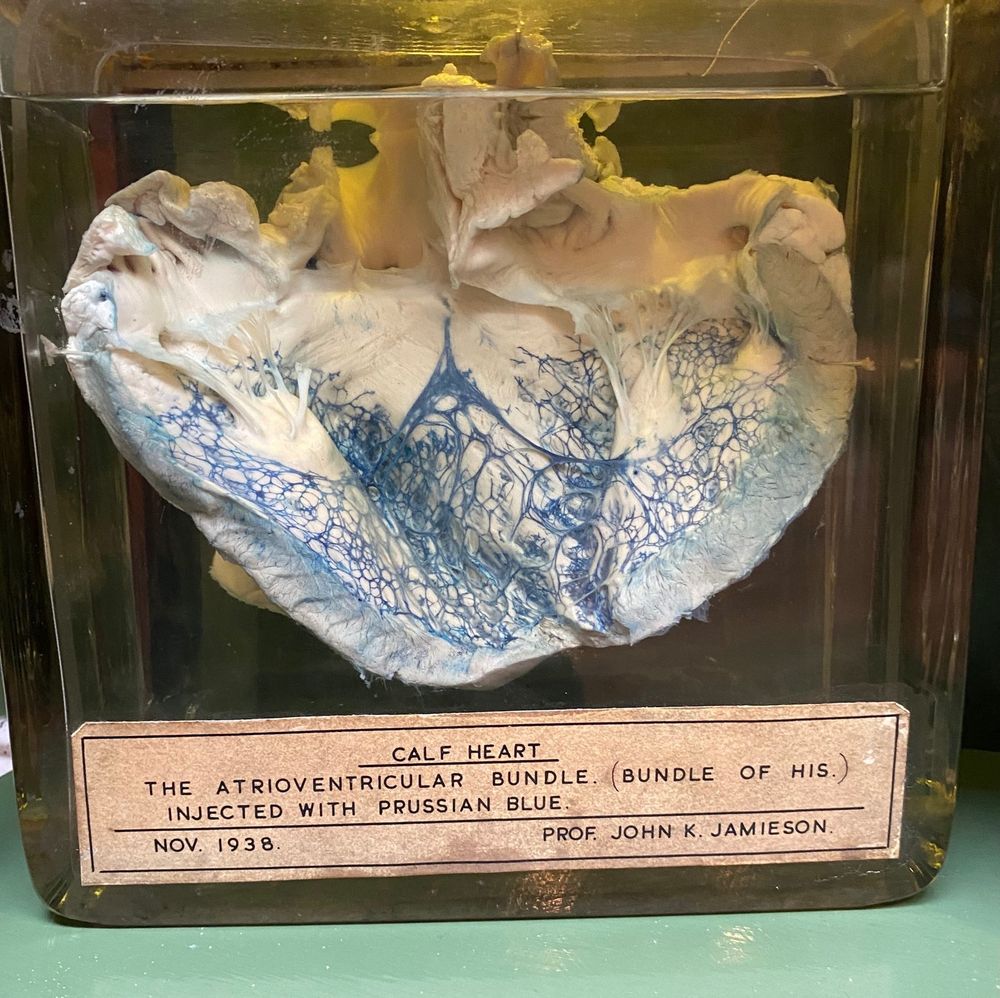
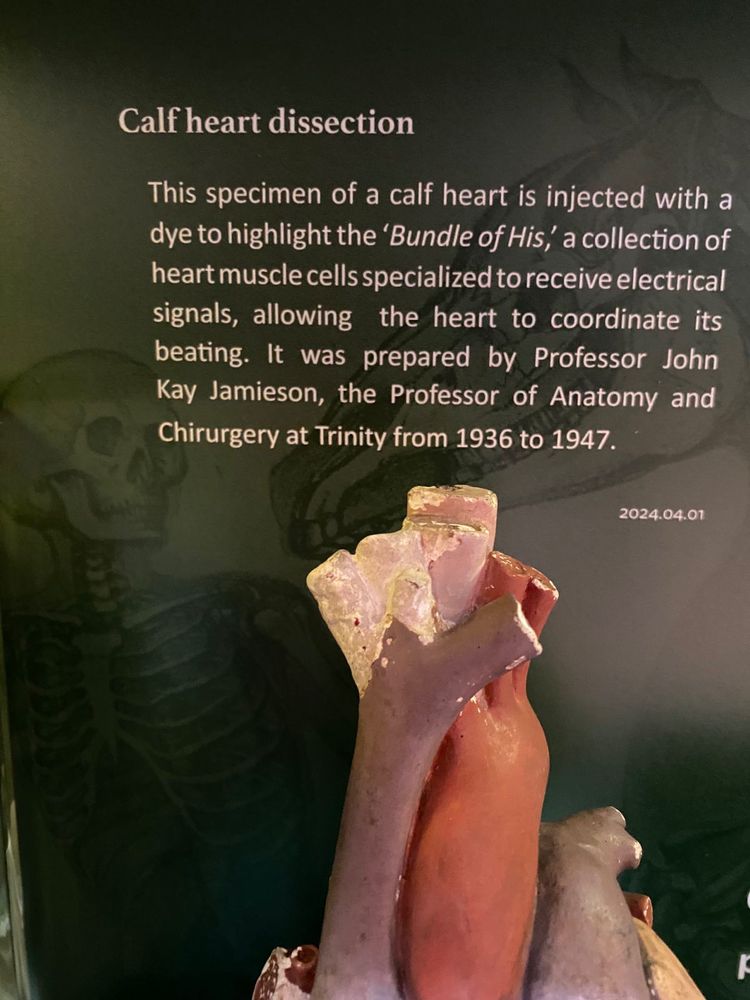
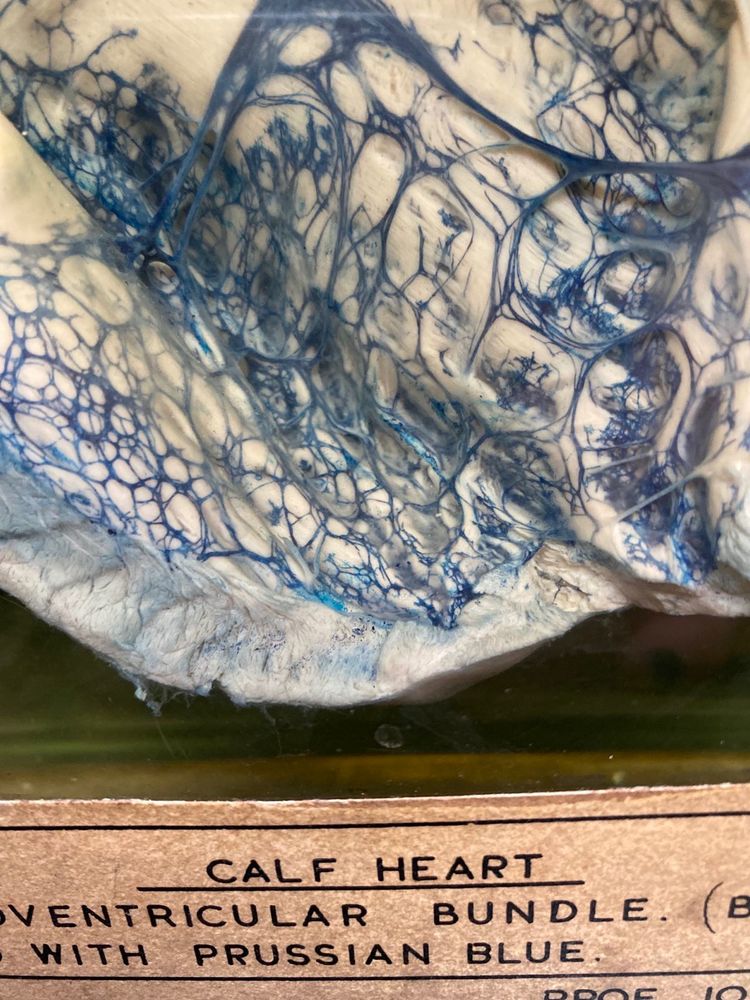
5. Dissection of a calf heart showing the Bundle of His, prepared by Prof. Jamieson in 1932
14.02.2025 22:59 — 👍 1 🔁 0 💬 1 📌 0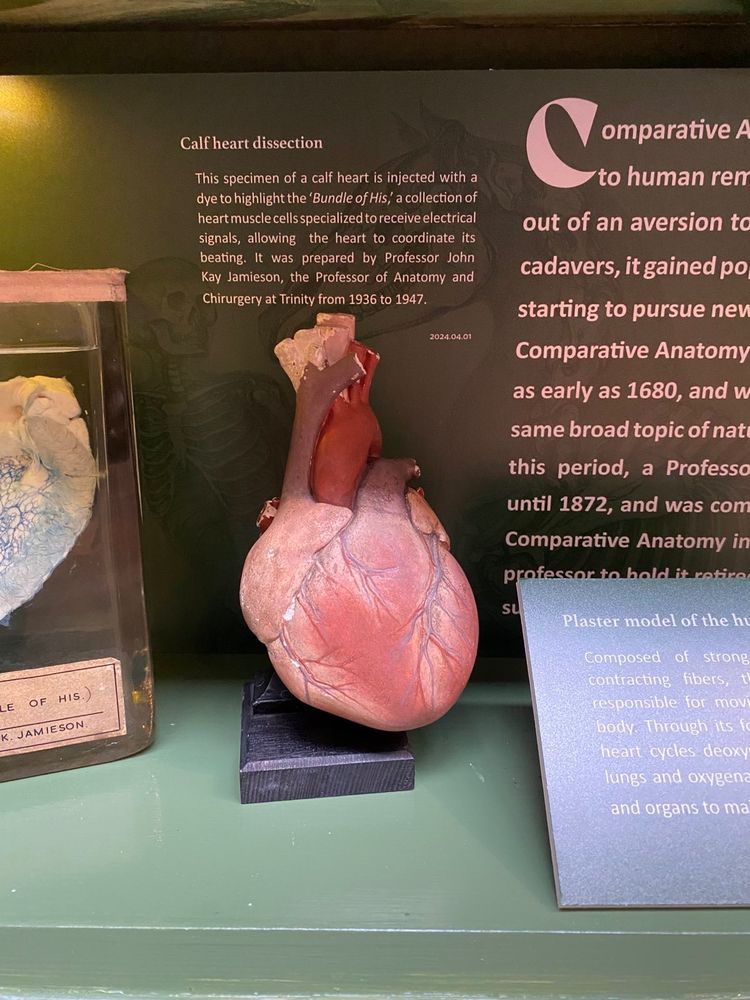
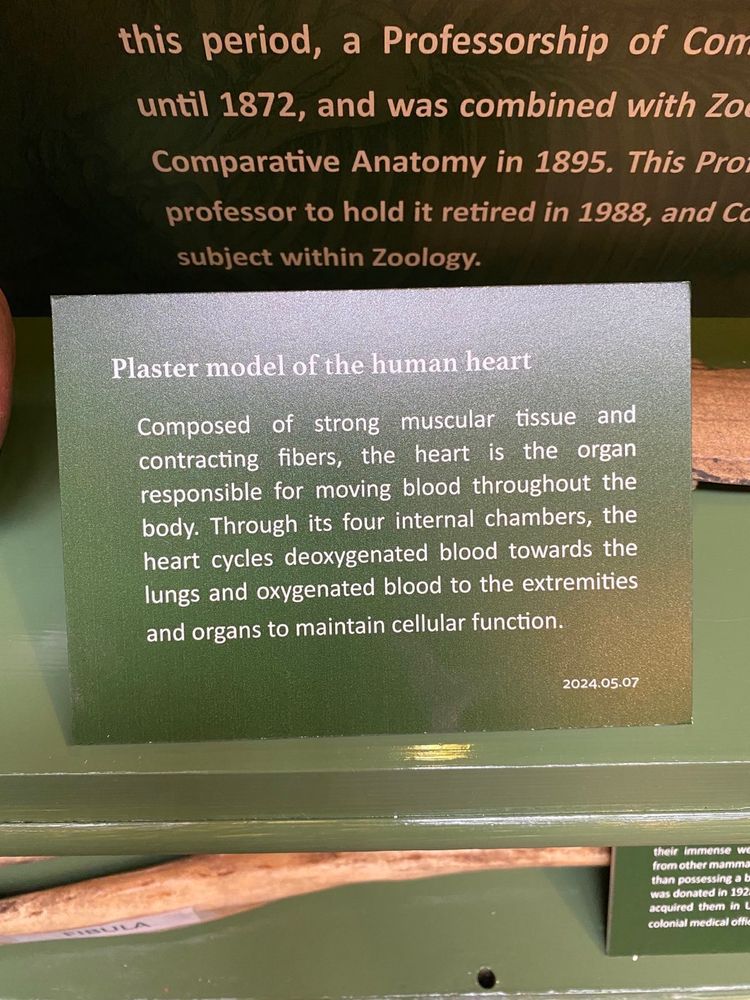
4. Polychrome plaster model of the human heart, likely by the Bock Steger Studio, Leipzig, 1880s
(Featured in our "A Cabinet of Wonders" exhibit, researched and written by intern Max Ullman in 2024. )
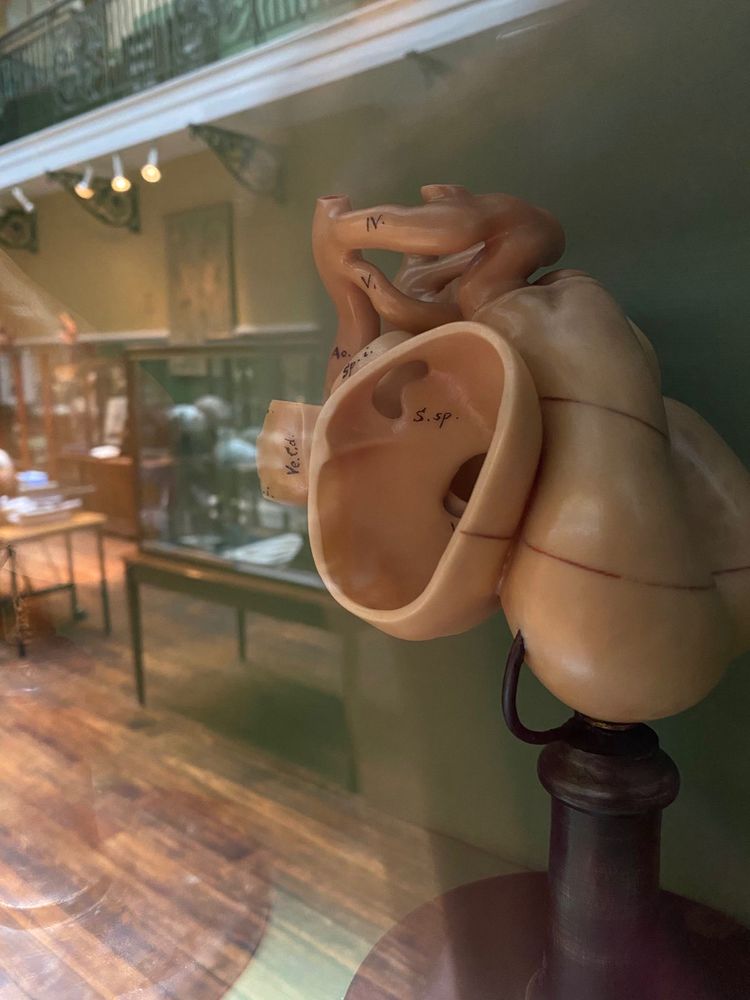
3. Wax model of a foetal heart, Adolf Ziegler Studio, 1860s-1880s
14.02.2025 22:59 — 👍 1 🔁 0 💬 1 📌 0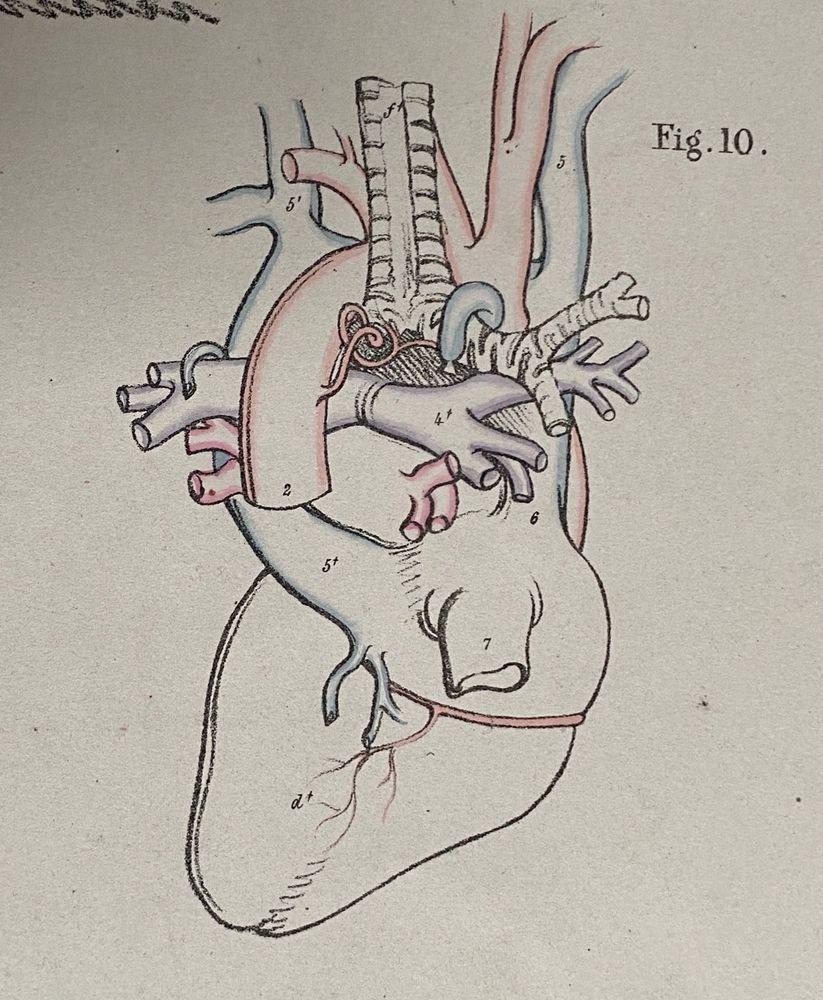
2. "Example of a peculiar disposition of of the large Veins of the Abdomen and Thorax", Plate 58. Fig. 10, The Anatomy of the Arteries of the Human Body, Richard Quain, F.R.S. illustrated by Joseph Maclise, 1844
14.02.2025 22:59 — 👍 1 🔁 0 💬 1 📌 0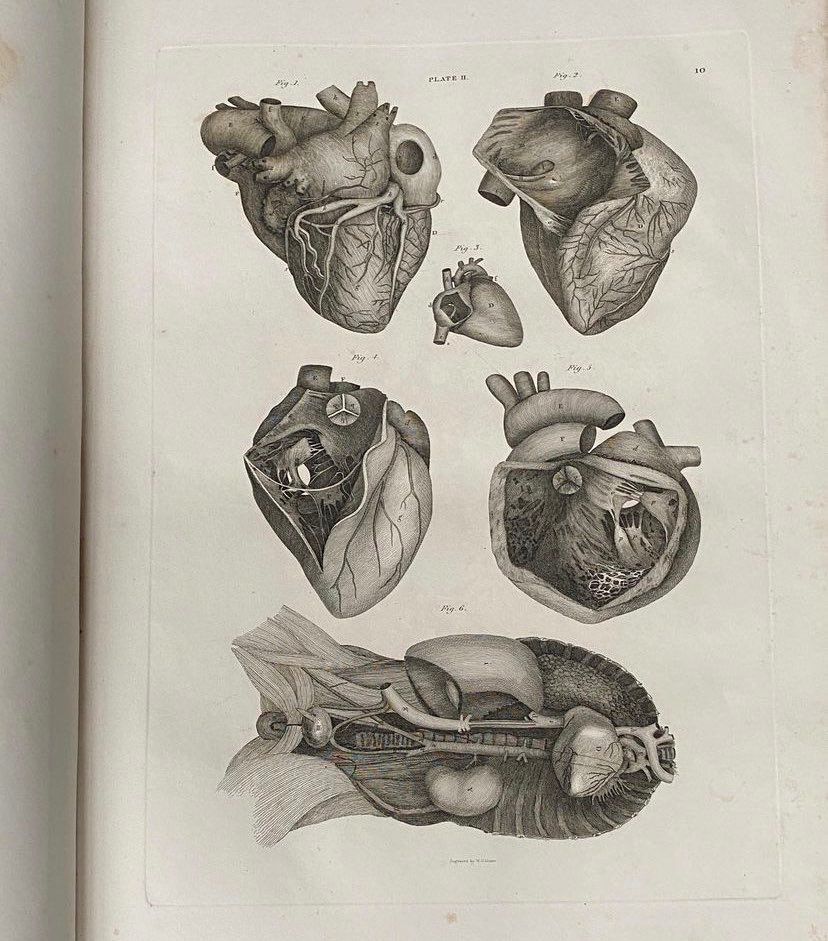
We are also rather fond of these hearts in our collection 🫀🧵
Repost your favourite! #ValentinesDay #MuseumValentine #Archivalentine #thisIsTrinityMed
1. Cardiac Anatomy, A system of Anatomical Plates of the Human Body, John Lizars, F.R.S.E, Edinburgh, 1822
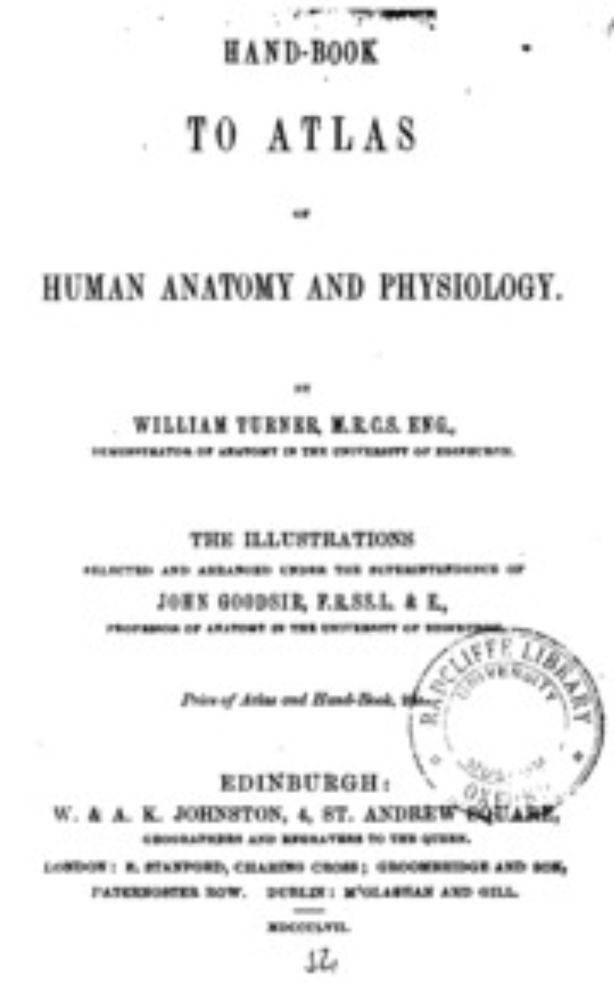
You can view the full work at the ever -helpful @archive.org : archive.org/details/atla...
14.02.2025 22:30 — 👍 2 🔁 0 💬 0 📌 0